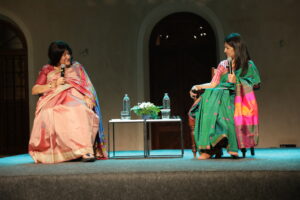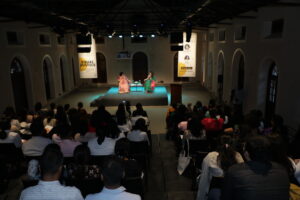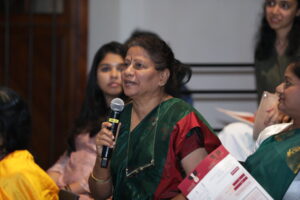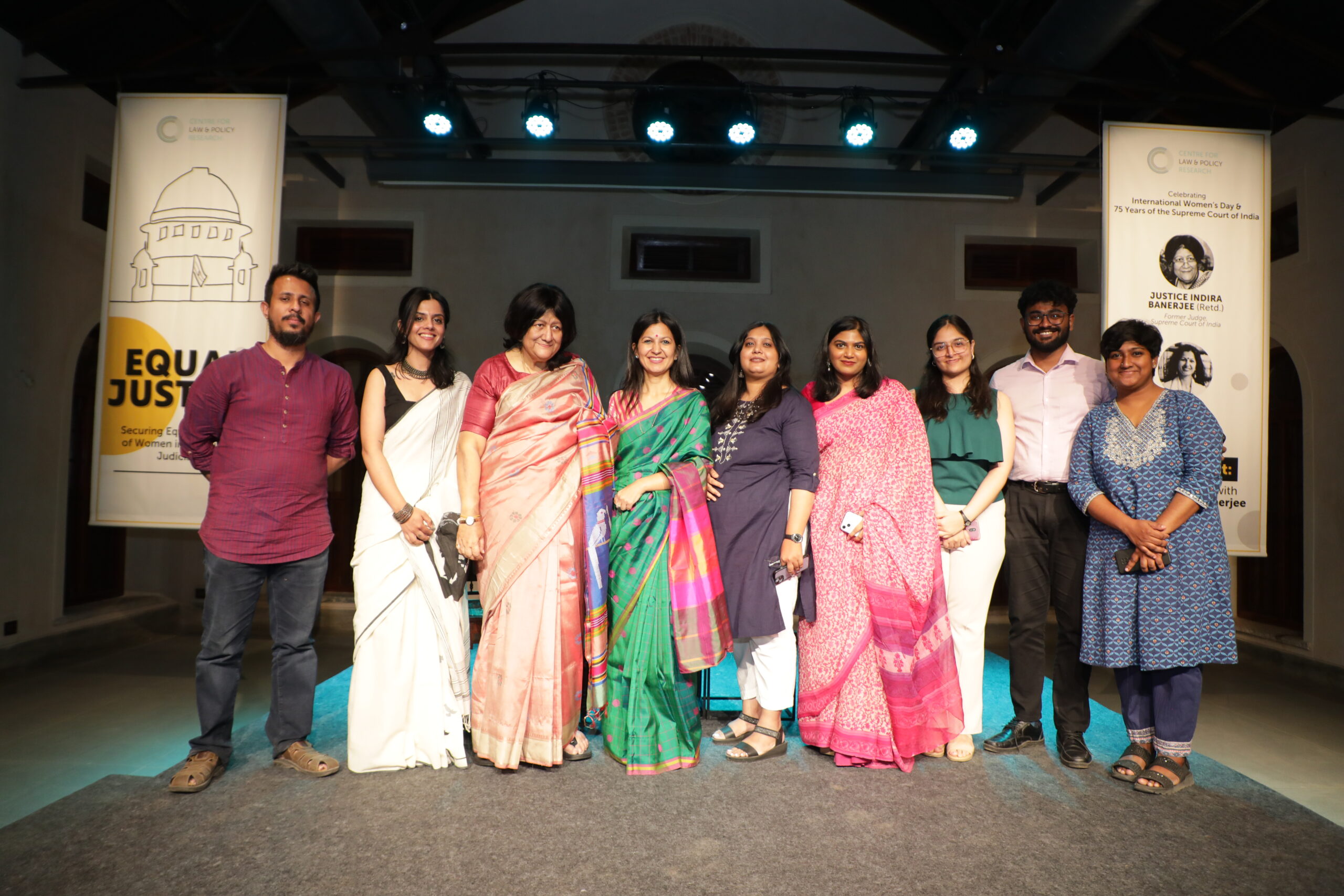
The Centre for Law and Policy Research (‘CLPR’) organised a Fireside Chat with Hon’ble Justice (Retd.) Indira Banerjee on the occasion of International Women’s Day on March 8th 2025 in Bangalore. The conversation was led by Senior Advocate & Executive Director of CLPR, Jayna Kothari, and centred on the inclusion of women in the higher judiciary in India.
Ms. Kothari began the chat by first providing a brief background on CLPR’s “Equal Justice” project studying the gender gap in the Indian higher judiciary. She raised some of the significant data findings under this project, highlighting the low numbers in the Supreme Court and High Courts, and the absence of women at senior-level positions such as Chief Justice or within the collegiums.

She then began the conversation with Justice Banerjee, asking about her early experiences as a lawyer and how she chose the profession. Justice Banerjee related her brushes with gender discrimination right from childhood. Being the youngest of three daughters, her mother would face condescension from friends and relatives for not having a son in addition to advice getting her daughters married off. Justice Banerjee’s mother however was a fierce supporter of her daughters’ education and career prospects.
Justice Banerjee shared that as a first-generation lawyer, doubts were cast if she would be able to succeed in the legal profession. She struggled to get an initial foothold: four seniors refused to hire her as they did not “take women in their chambers.” Once she became a judge, she spoke about feeling lonely as the only woman judge in the Calcutta High Court in the first four years following her elevation.
Ms. Kothari observed that even in the US Supreme Court, women judges have spoken about being talked over by their male counterparts. At this juncture, Justice Banerjee recounted instances of male counterparts being condescending in their demeanour, and stated, “Unless you are a very assertive kind, you tend to get a little cornered.”
Justice Banerjee reflected on her earlier comments that appointments of women judges should not be headline news. She added that it was not only important for there to be an increase in the numbers of women, but there should also be inclusion, stating “You have to have an inclusive judiciary, there has to be diversity in the judiciary. Not just women of a particular group or class.”

Justice Banerjee emphasised the importance of substantive parity between men and women to see true equality in the judiciary, which requires a two-fold approach. First, there needs to be a change of mindset that eliminates discriminatory thought. Oftentimes, discrimination is ‘non-deliberate’ i.e. it is a result of inbuilt biases. This, Justice Banerjee said, is a mindset that can only be cured through equality in the upbringing, education and opportunity for women. Secondly, the ‘selectors’, i.e. the collegium, must keep their eyes and ears open to practicing women lawyers who are eligible for elevation to the High Court. Justice Banerjee highlighted the gendered nature of care work, and the impact it has on the careers of young women lawyers, especially those who get married. Keeping this in mind as well as the later elevation of women, she suggested that there be income and age relaxation for qualified women at the High Court elevation level.
On being asked what judges can do to further gender mainstreaming in the judiciary, Justice Banerjee suggested that judges take the initiative to ensure that young women lawyers receive empanelment in public sector undertakings at the State and Central level.
Justice Banerjee then addressed questions from the audience. A young law student asked about what could be done to overcome the attitudes of some male lawyers who avoided hiring women. Justice Banerjee pointed out that this was a result of the same mindset that she had previously mentioned, which needed to be changed. There are a lot of myths about women’s ability to work in the same conditions as men which need to be challenged. Justice Banerjee was also asked about the difficulty often cited by male lawyers in approaching a female judge. To this, she said, “What’s the difficulty? Please ask them what the difficulty is. Don’t you have difficulty facing difficult men judges?”

Justice Banerjee ended on an optimistic note, urging young women students and lawyers to aim for the judiciary. She stated that being a judge brings one a variety of exposure, and a “woman doing well can get equal, if not more attention.”
For the full conversation between Justice Indira Banerjee and Senior Advocate Jayna Kothari, please visit this link.


